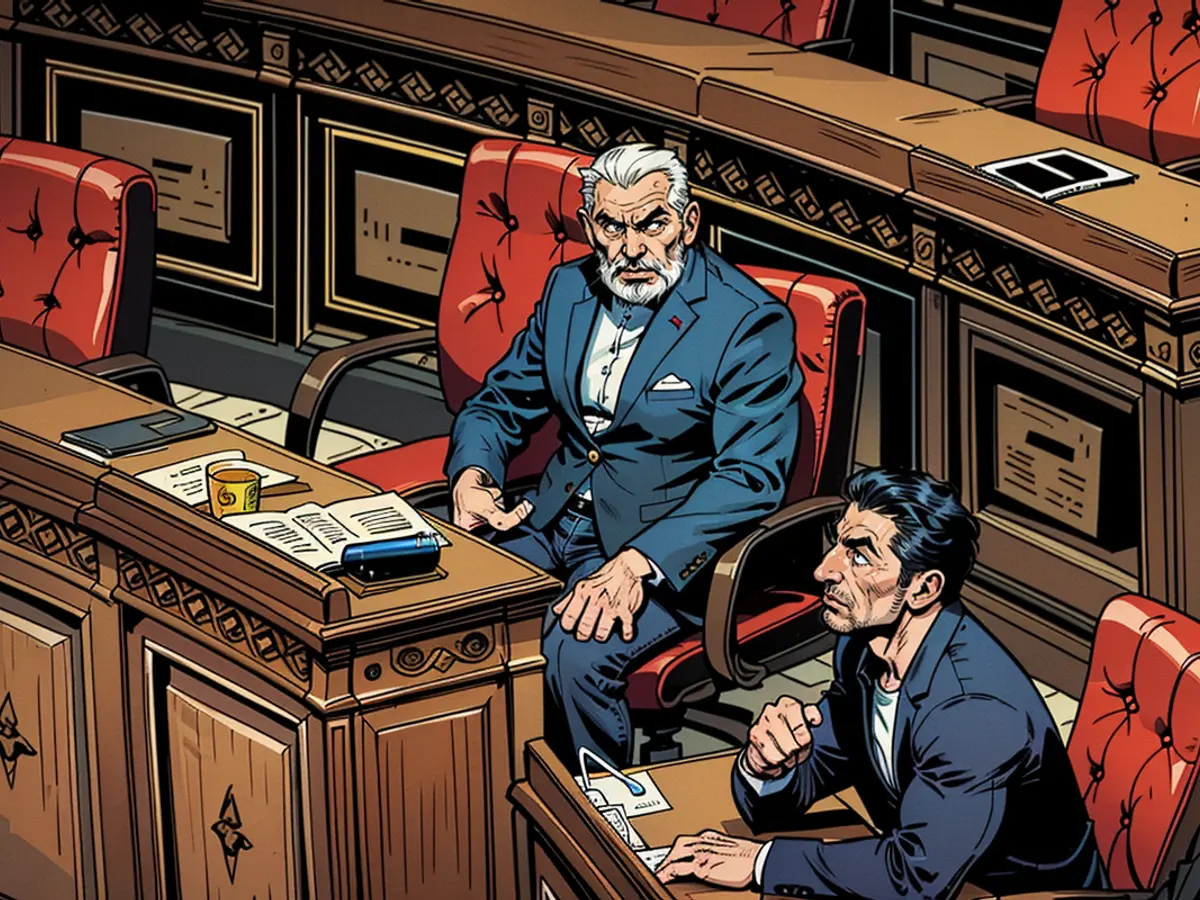Armenia will pull out of the Russia-led military group, accusing fellow members of planning a conflict.
Pashinyan has criticized the CSTO (Collective Security Treaty Organization) for failing to protect Armenia from Azerbaijani aggression, stating his intention to leave the alliance if Russia doesn't provide stronger assurances andlean more towards the US and EU.
Armenia and Azerbaijan have been in conflict over Nagorno-Karabakh since the collapse of the Soviet Union, with two wars taking place. Russia has historically been an ally of Armenia, but relations have deteriorated recently as Moscow's relations with Azerbaijan have strengthened.
While speaking to parliamentarians in Yerevan, Pashinyan announced that Armenia had "frozen" its participation in the CSTO and would depart from the bloc at a time of Armenia's choosing. He claimed that the member countries of the alliance were not fulfilling their contractual obligations, but were planning a war with Azerbaijan against them.
Pashinyan refrained from directly naming the countries in the alliance, which includes Russia, Belarus, Kazakhstan, Kyrgyzstan, and Tajikistan, and was established in 1992 as the Soviet Union collapsed.
The deterioration of Armenia's ties with Russia follows Azerbaijan's reclamation of Nagorno-Karabakh in a one-day war in September, resulting in nearly all of the Caucasian enclave's ethnic Armenian population fleeing their homes and entering Armenia proper. Russian peacekeepers, who were supposed to protect Karabakh's population, were perceived by the locals as having failed to do so.
Over 2,000 Russian peacekeepers were stationed in Karabakh after a 44-day war in 2020, when Azerbaijan seized about a third of the enclave, only to be halted by a Moscow-brokered ceasefire. However, this ceasefire was violated three years later, leading to the evacuation of Karabakh's Armenian population.
Pashinyan refused to send Armenian military support to Karabakh, leaving the region's troops heavily outnumbered and vulnerable. As a result, they were forced to surrender swiftly.
Azerbaijan's President Ilham Aliyev described reclaiming Karabakh as his "sacred goal," despite international outrage over the expulsion of Karabakh Armenians, which was labeled by Armenian officials as ethnic cleansing.

Peace talks have continued, but a treaty has not been signed. In April, Armenia did agree to return four border villages to Azerbaijan, considered a crucial milestone towards a peace deal.
Optimistic about the recent progress, Pashinyan stated that Armenia is ready to sign a peace agreement within a month, describing the terms as "fully developed and ready to be finalized."
However, his efforts to normalize relations with Azerbaijan have stirred dissent at home. Protesters have critiqued Pashinyan for conceding too much to Aliyev, demanding that he resign. Azerbaijan has also asked Armenia to revise its constitution to remove a reference to Karabakh's independence. Pashinyan has so far refused to comply.
The protests in Yerevan emulate the demonstrations that brought Pashinyan to power in 2018, with clashes between police and protesters using stun grenades. Over 100 police officers and civilians were injured, according to Armenpress.
The protests have been led by Archbishop Bagrat Galstanyan, who has called for Pashinyan's resignation. "The problem is simple: this man must leave, there is no other option," Galstanyan wrote on social media.
Though Pashinyan has not provided a specific date for Armenia's departure from the CSTO, all Russian peacekeepers who had been stationed in Karabakh concluded their withdrawal on Wednesday, as reported by Azerbaijan's defense ministry.

Read also:
Armenia's decision to leave the Russia-led military alliance could potentially impact Europe's security landscape, as Armenia has historically been a key partner in Europe's eastern flank.
Pashinyan mentioned during his speech that he believes some member countries of the alliance are planning a conflict against Azerbaijan, hinting at possible European concerns over potential escalations in the region.







